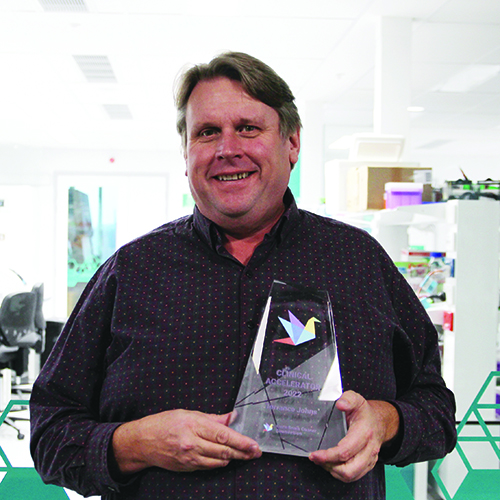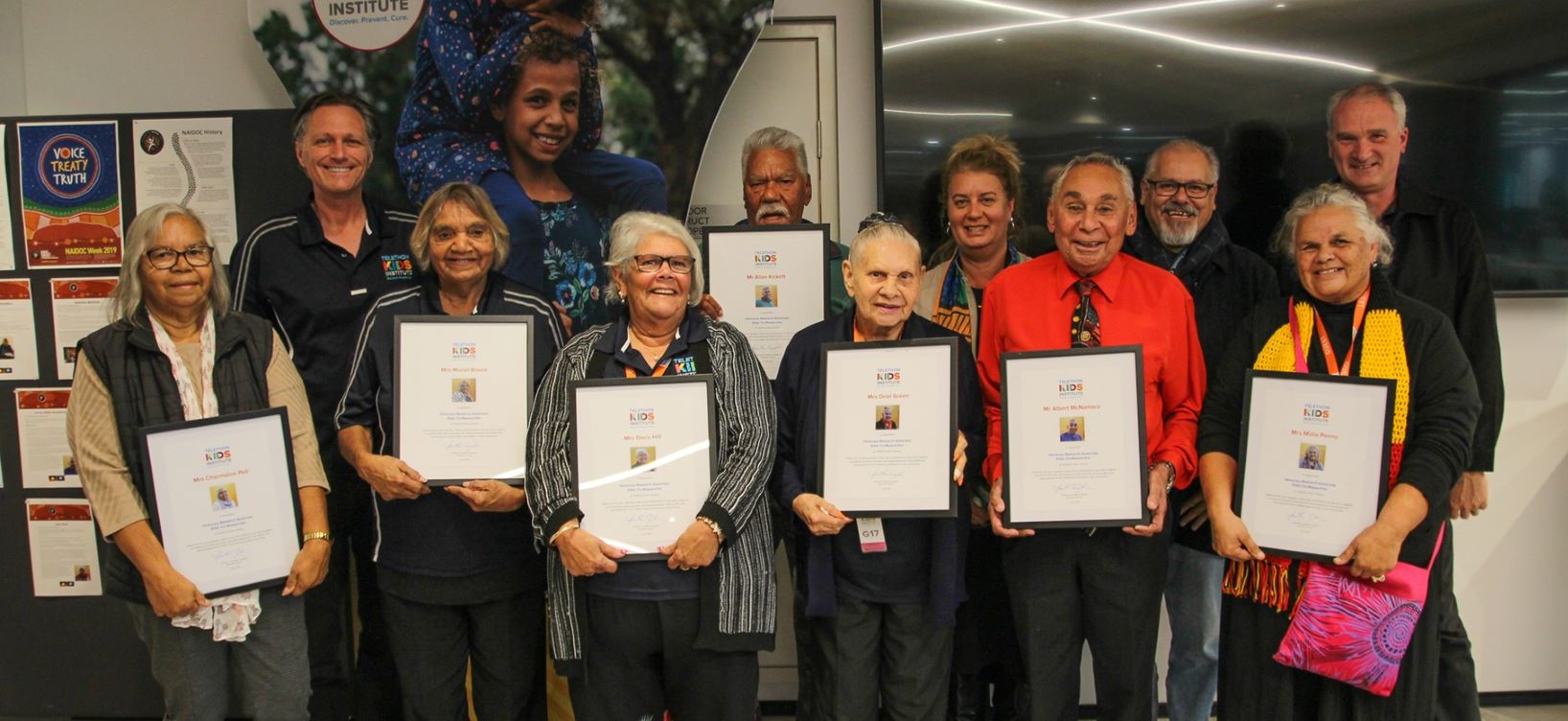Search

WA Kids Cancer Centre is leading the charge to find innovative new treatments that will allow doctors to ‘dial down’ the amount of toxic treatments needed to fight cancer.

Facilitate research interest & opportunities that involve Aboriginal families & communities and build the capacity and development of Institute researchers

A series of fact sheets have been prepared on a number of issues relating to Indigenous suicide prevention, from our investigations and roundtable discussions.
Strengthening the capacity of Aboriginal children, families and communities
Research
KAMS MOUAs part of the discussions with Kimberley Aboriginal Medical Service (KAMS) to establish the Broome site of the WAAHKN it has been agreed to establish...
Research
BreastfeedingConvenient, readily available and helping create a close and loving bond between baby and mother, breastfeeding is highly regarded for optimising infant health and preventing chronic disease in adulthood.

The Ngulluk Koolunga Ngulluk Koort (Our Children, Our Heart) Project grew out of a bold vision to harness the wisdom of Aboriginal Elders to improve outcomes for Aboriginal children, producing a suite of Elder-led, culturally appropriate and empowering initiatives that are making a difference.
Research
The unmet clinical needs of children with developmental coordination disorderThe aim of this study was to understand the challenges experienced by families obtaining a diagnosis and therapy for developmental coordination disorder (DCD). Parents of 435 children aged 4-18 years with persistent motor difficulties consistent with a diagnosis of DCD completed an online survey. Diagnostic timeline and diagnostic label/s received were examined, along with therapies accessed.
Research
Implementing telehealth support to increase physical activity in girls and women with Rett syndrome-ActivRett: protocol for a waitlist randomised controlled trialIndividuals with Rett syndrome (RTT) experience impaired gross motor skills, limiting their capacity to engage in physical activities and participation in activities. There is limited evidence of the effectiveness of supported physical activity interventions. This study aims to evaluate the effects of a telehealth-delivered physical activity programme on physical activity, sedentary behaviour and quality of life in RTT.
Research
Community Priority setting for Fetal Alcohol Spectrum Disorder Research in AustraliaIntroduction Fetal Alcohol Spectrum Disorder (FASD) is a neurodevelopmental disorder caused by prenatal alcohol exposure (PAE). FASD research is a rapidly growing field that crosses multiple disciplines. To ensure research is relevant and meaningful for people living with FASD, their families, and the broader public there is a need to engage community members in setting priorities for research.
